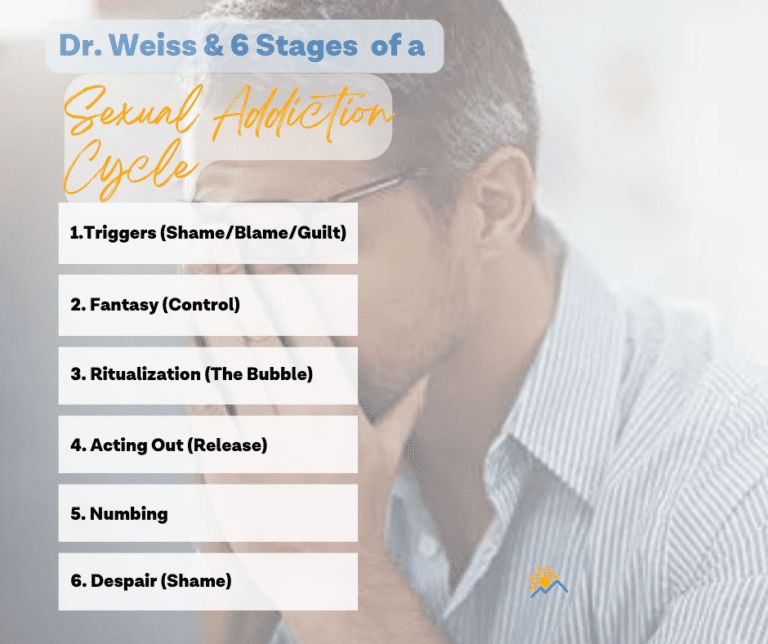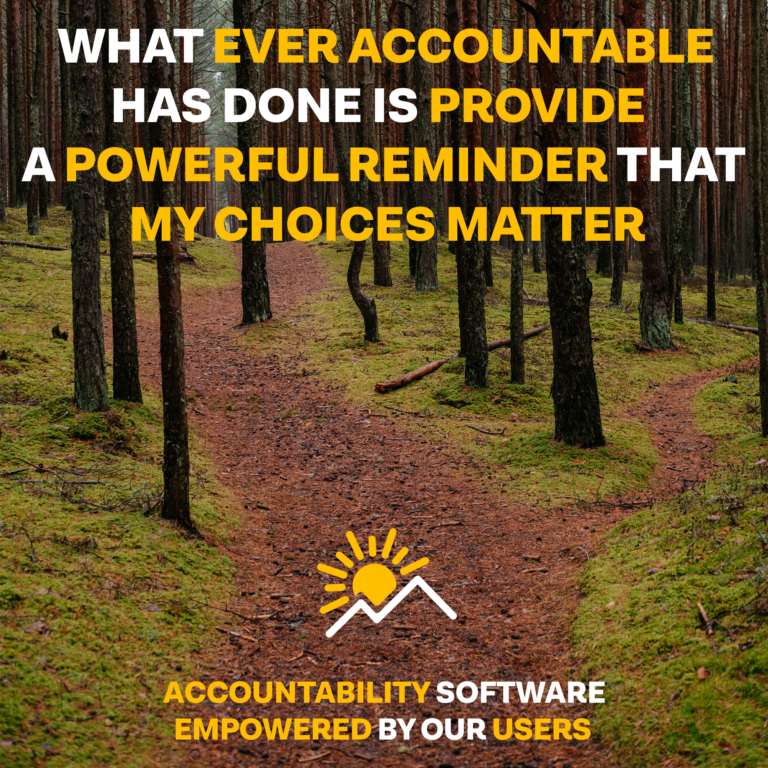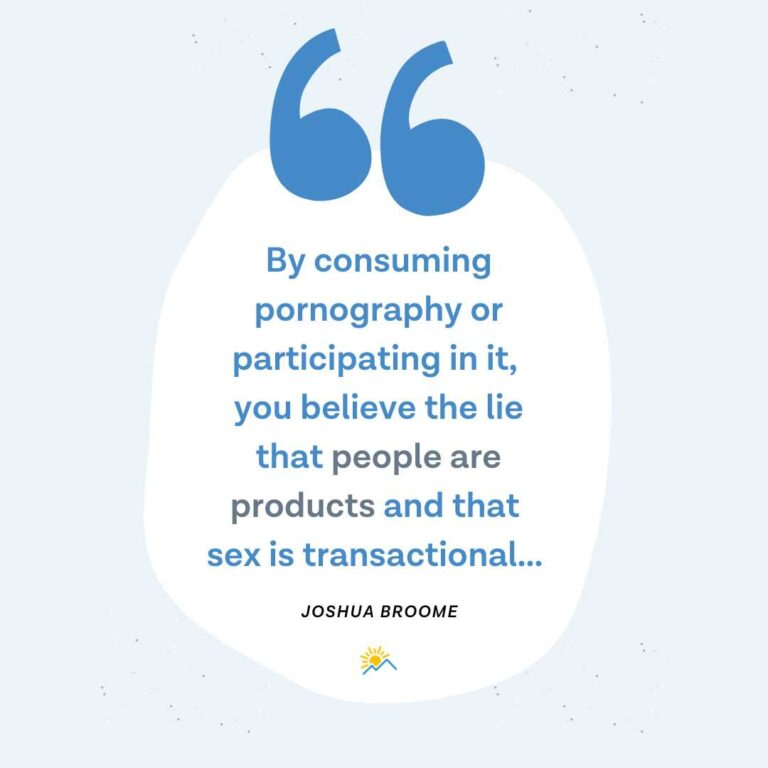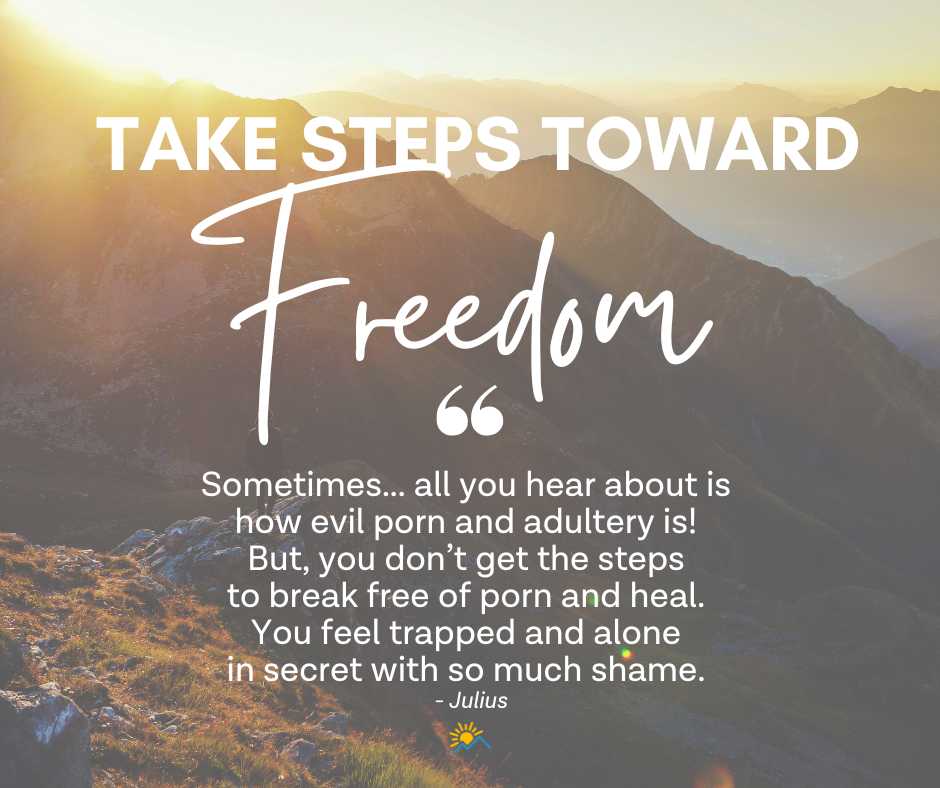If you’re struggling with how to stop watching porn, it’s worth noting that you’ve been specifically targeted by a huge industry with very deep pockets.
Maybe, though, you’ve already tried over and over again to quit and are feeling terrible about yourself. You’re not alone.
Yet people just like you ARE successfully quitting porn. You’re probably wondering “how”, so we’ll share 10 success tips for how to stop watching porn, based on others’ stories as well as what the experts say.
You can do this!
But first, let’s pull back the curtain a bit more on how the porn industry is manipulating you and making your life miserable.
14-Day Free Trial
Protection From Pornography
Change your habits, change your life: Start our 14-day free trial to help get rid of pornography for good.


Know your enemy — because porn knows you.
Did you know that many popular porn sites are part of a mega, privately held parent company named Aylo worth billions — or more — (formerly called MindGeek)?
That knowledge alone might motivate you to take further action. Why? It’s beyond frustrating to learn that the porn industry is actively watching you through lots of streaming data that they continually collect including:
- the days of the week you view porn
- your dates of viewing
- your zip code
- your pause/rewind/fast forward behavior
- your view times
Just like customers of Netflix, Apple, and Spotify, you’re being tracked and targeted as you search and use porn online. The technical term for this is data-driven creativity.
Even if you’re desperate to quit porn, the mega porn industry knows the places you’ll visit online and how to best reach you in your hour of temptation.
Make no mistake! You have a flaming bullseye on your back when it comes to the porn industry. We all do.
1. Recognize that porn harms you mentally and emotionally.
Are you overcome by feelings of shame over your porn habit?
Do you feel lonely and worthless? These miserable feelings are common among porn users.
Whether you’re a NBA basketball star like Lamar Odom or a young woman like Rachael, admitting that porn is harming you is an important first step toward porn recovery.
If you’re struggling with a compulsive porn habit, your brain is currently being rewired by porn.
In order to understand how to stop watching porn, you need to know how porn may actually affect your brain over time. (Check out blogs where we explain how overdoses of dopamine may create a sense of addiction to porn and struggles with porn withdrawal.)
2. Find motivation: stop watching porn because porn abuses people.
You may feel this deep down inside already. As you educate yourself, you begin to understand that porn destroys the lives of many young women caught in the web of human sex trafficking.
When you view porn, you’ll never know a porn actor’s real story. Objectifying another human being as a sex slave isn’t who you really want to be, right?
And what happens when children view porn accidentally? They’re being educated about sex by a twisted view of synthetic sex. This shapes their feelings of self-worth and thwarts their future goals.
Understanding and facing the monster you’re fighting is a powerful motivation to quit porn.
3. How to stop watching porn – get to the root reasons why you watch porn.
Have you stopped to think seriously about the reasons you turn to porn?
Dr. Brene Brown notes that we all use numbing behaviors to escape pain and shame in our lives.
Therapists and psychologists label the reasons we numb ourselves as “triggers”.
Not all triggers are due to “sex in every check-out aisle,” but checkout aisle magazines are worth a trigger warning.

Identify your personal porn triggers
Expert therapist Dr. Brian Willoughby explains porn triggers and provides a porn-triggers quiz to self-evaluate.
He divides triggers into four basic categories: emotional, behavioral, psychological, and attraction triggers.
Another easy way to remember triggers is the HALT acronym. Ask yourself when tempted, Am I Hungry, Angry, Lonely, or Tired?
Practical ways to overcome your porn triggers
Triggers may include objects, places, or activities associated with porn use.
Knowing what you can and can’t avoid allows you to create a strategy for success.
Here are some practical tips for overcoming porn triggers:
- Share your porn triggers with a friend or accountability partner.
- Talk to your therapist about ways to deal with specific triggers.
- Take notes on your porn relapses to learn from your mistakes:
- Ask yourself the 5 W’s: What, Who, Where, When, and Why.
- Write down the answers to these questions to get you started looking for porn trigger patterns.)
- What was I thinking or feeling?
- What was I doing leading up to the moment?
- Where was I watching porn? In the bedroom or bathroom? At work? Sitting in the car?
- Who was I with just prior?
- Was I angry, sad, depressed, bored?
- When do I most frequently watch porn?
You might even mentally color code your porn triggers or give them a danger word.
4. Share you goals to quit porn with a friend.
First, take a positive approach! How about telling a friend, pastor, or family member: “Hey, I’m working on personal goals including my plan to stop watching porn. I need an accountability partner to help me be successful as I plan.”
Next, clearly ask: “Would you help me succeed?”
Asking for help starts with just ONE brave conversation — one small step toward freedom from porn.
Instead of feeling overwhelming shame, you may feel inspired to work on your goals with an added spring in your step. Quitting porn is just one of your success goals.
Eli Nash, in his 2019 TedX talk, publicly shared his story of compulsive porn use.
Nash says, “For a conversation to change, it needs people to share their stories… One day I got so desperate I asked for help.”
5. How to stop watching porn – the #1 secret way that helps 60% of people stop cold turkey.
We all are tempted to quit when life gets tough.
Turning to your trusted accountability partner in a moment of struggle is so helpful.
“Accountability is so much more than what ‘bad people have to do’. It brings strength, relationship, victory, confidence, and freedom to life.” — Kolby, happy customer
1. Commit to accountability.
Why does accountability work? For men or women, porn use is isolating. Accountability takes away that secrecy.
Porn has no place to hide when you use online accountability software that shares your activity with your partner.
You choose a person you trust, that you can be honest with, and who cares about your goals.
In order to succeed with an accountability partner, you also need a plan for success.
2. Set a time to plan together to talk about your goals.
Next, give your accountability partner a specific list of several of your personal goals — including your plan to stop watching porn. Maybe you also want to finish a degree or get in the best shape of your life.
How will you handle your triggers or weak moments? Brainstorm together for solutions – and keep reading for more ideas in this article.
3. Download accountability software on all of your online devices.
Once you’ve set this up, all of your internet activity will be visible to your chosen (and trusted) accountability partner.
Be sure to download accountability software on every single one of your devices. Our accountability software even allows your partner to create a custom list that will get flagged on your accountability report if you search these terms.
6. How to stop watching porn: plan specifically and realistically.
How would you rate yourself? Is your level of porn usage mild? Moderate? Out-of-control?
From our private customer survey results we know that individuals struggle with porn on varying levels. Some need to work harder than others to overcome porn.
How to stop watching porn if you view porn weekly or monthly:
- Create your check-in plan with your accountability partner.
- Plan on a weekly check-in with your accountability partner.
- Pay attention and share your porn triggers with your partner.
- Study the porn recovery process.
- Celebrate wins and share them with your partner.
- Consider joining an online porn recovery community.
How to stop watching porn if you have a daily porn habit:
- Check in with your accountability partner daily if possible.(You can reach out to [email protected] to get your reports sent daily instead of weekly.)
- Carefully note your porn triggers.
- Set radical boundaries around your triggers (ex: no social media, and switch to a flip-phone).
- Take an online porn recovery course.
- Join an online porn recovery support group.
- Read at least one book on quitting porn.
- Report relapses right away (less than 24 hours).
- Practice mindfulness.
- Add an exercise routine to your life.
You’ll seriously exercise your accountability muscles — and expect to see real progress, not perfection.
Be sure to thank your accountability partner, too! Here’s an article to help your accountability partner to help you.
How to stop watching porn multiple times a day:
You are not alone in your fight. Others have been in your shoes and beat porn. There’s strength in numbers.
- Choose more than one accountability partner.
- Set up daily accountability reports.
- Check in with at least one partner daily.
- Learn about the porn recovery process.
- Read books about porn recovery.
- Take an online porn recovery course.
- Join a porn recovery community – a must!
- Journal about your past story.
- Dig deep to understand your personal porn triggers.
- Set radical boundaries around your triggers (ex: no social media, and switch to a flip-phone).
- Seek professional help with a sex addiction (SA) counselor.
- Expect relapses at first and report them right away.
- Plan to “fail forward” by learning from your mistakes.
- Give your body and brain plenty of care: healthy food, exercise, stress relief, and new activities to enjoy.

7. Invest in professional therapy – especially if you feel out-of-control.
Some struggle so deeply with porn that they feel their porn habit has taken over their life. You feel helpless and addicted, because you want to quit. You’ve tried and failed many times to quit porn before.
Though porn addiction is not specifically listed by the American Psychiatric Association in their Diagnostic and Statistical Manual of Mental Disorders (DSM), compulsive sexual behavior disorder (CSBD) is now listed as a formal diagnosis by the World Health Organization (WHO).
CSBD falls under an impulse control disorder in WHO’s International Classification of Diseases, 11th Edition (ICD-11). That means you have more treatment options.
For example, WebMD lists symptoms of sexual addiction including:
- Sexual acts
- Prostitution
- Watching or consuming pornography
- Masturbation or sexual fantasy
- Exhibition or voyeurism
Help is available, so please don’t give up hope!
Consider some treatment options available :
- Cognitive Behavioral Therapy (CBT)
- Psychosocial Therapy including group therapy such as Sex Addicts Anonymous (SAA)
- Cutting edge treatment for depression
- Psychodynamic Therapy focused on self-awareness and your past
Due to the long-term damaging effects of porn, the sooner you get help, the sooner damage can be undone!
8. Stop watching porn empowered by new daily rituals.
“By failing to prepare, you are preparing to fail.” -. Benjamin Franklin.
Tell yourself out loud: planning my day is part of my goal to stop watching porn.
In fact, writing down and talking about your plans and goals aloud makes them more likely to happen. Getting rid of porn requires forming new habits.
One Lifehack.org article calls your bad habits your “kryptonites”,
“Creating your productivity ritual — a routine that helps you to maintain a peak level of energy can get you the best out of your days. Part of creating your productivity routine involves removing activities that drain you (what I call “kryptonites”), and that includes your bad habits.”
Here are more success tips from expert planners.
How to stop watching porn: create a morning routine.
“Creating a morning routine for yourself is essential to a successful life,” – Ken Brokaw
(Forbes article.)
Eric Partaker, former CEO of the Year, peak performance expert, and best-selling author of The Three Alarms says there is no one right way to start your day.
- Listen to Eric’s tips for an almost-perfect day in less than 10 minutes including a dynamic “River of Flexibility” as you create your ideal day!
- Here’s another super-streamlined example: Daily Rituals and Michael Hyatt’s Morning Routine for the busy executive type, especially.
- How about a morning routine course for moms — tailored to your different styles of busy? For women who struggle with porn, creating your own healthy routine and pattern is also vital for avoiding porn triggers.
Write out how you picture your ideal day.
Are your days plagued with reactivity and struggle? Do you have an agenda for your day that never gets done?
Be extremely practical first. What absolutely needs to get done on a daily basis in your life?
What important elements do you wish you were doing — like a fitness routine, and time for important relationships?
Wrap up your day with a bedtime routine.
A perfect day begins with being well-rested.
If you’re used to reaching for the phone and scrolling through porn videos, think about “divorcing” your phone at bedtime.
Prep in small ways for the next morning. Lay out your clothes, fix your lunch, clean out the kitchen sink, etc…
Create a battle plan for super stressful days.
Plan to de-stress, perhaps by talking about it or writing in a journal.
Stress is the opposite of rest!
To reduce stress, try mindfulness relaxation techniques from online coaches like Michael Galyon, known as the “Zen Ken”.
9. Pursue “natural highs”.
You can and should replace porn’s unhealthy dopamine rush with healthy activities that you absolutely enjoy.
This may be spending time in nature or relishing a new exercise routine.
Find something that makes you smile and say, “That’s DOPE!”
Since we don’t know what activates your personal natural highs, here’s a “stone soup” approach. Let’s throw a few delicious ideas into a general pot.
Any or all of the activities below help you break porn’s boredom trigger.
- Soak up some sunshine — good mood food!
- Get out and play with friends in a fun, new way — try pickleball or frisbee golf.
- Concoct something delicious — add an international flavor.
- Create something lovely — art, music, poetry, pottery, etc..
- Plant a herb garden — beautiful and useful.
- Try woodcarving — or build something with wood.
- Hike a new trail — be a curious explorer.
- Clean out your shed or closet — fresh start satisfaction.
Need more ideas to utilize the power of healthy dopamine? We’ve created a handy awesomeness list.
10. Tap into the power of community!
Community. Community. Community.
We hear this over and over again!
“I found a mentor.”
“I found a group of friends who support me on my porn-free journey.”
“Community is never optional on the journey to freedom,” says Brad.
Lorem ipsum dolor sit amet, consectetur adipiscing elit. Ut elit tellus, luctus nec ullamcorper mattis, pulvinar dapibus leo.
Why is community so powerful? It brings FREEDOM to love yourself and others, as Rachael shares.
Porn and shame isolate you from a healthy community and real connections with people.
So, take steps to flip the script on shame and porn!
What could your life look like in just six months if you flipped the script on porn?
When you take concrete steps to stop watching porn, you’ll find a whole new world of possibilities opening up for you.
That’s always our mission at Ever Accountable, too — helping you create an amazing life free of porn through the power of accountability and community.
*Ever Accountable’s blog is not intended to be a substitute for professional advice, diagnosis, or therapy, though we often link to medically reviewed studies.
14-Day Free Trial
Protection From Pornography
Change your habits, change your life: Start our 14-day free trial to help get rid of pornography for good.







